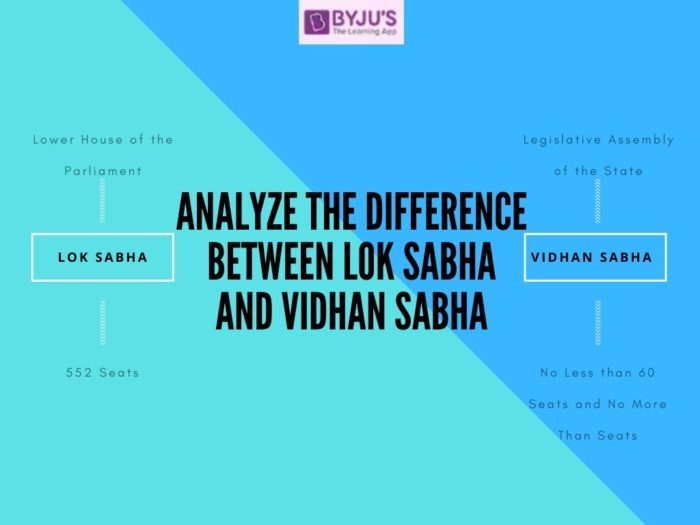The Vidhan Sabha is also known as the State Legislative Assembly. It is the lower house in states with a bicameral legislature or the sole house in states with a unicameral legislature
*To know the differences between the unicameral and bicameral legislature, you can visit the linked article.
The Lok Sabha is the lower house of the Parliament of India. It is also known as the House of the People as its members are directly elected through general elections.
| Do you want to see your name in the final merit list of UPSC 2023? Go through the strategy articles mentioned below: |

This article will further elaborate upon the differences between the two within the context of the IAS Exam.
The difference between Lok Sabha and Vidhan Sabha is given in the table below
Differences between Lok Sabha and Vidhan Sabha
| Lok Sabha |
Vidhan Sabha |
| The Lok Sabha is the lower house of India’s parliament which is bicameral in nature | The Vidhan Sabha is the legislative body in the states and Union Territory of India |
| As per the Constitution of India, the Lok Sabha has been allotted 552 seats. Currently, the 17th Lok Sabha elected in May 2019 has 543 seats filled. | The Indian Constitution states that the Vidhan Sabha must have no less than 60 members and no less than 500 members. Exceptions are made via an Act of Parliament for states and union territories with fewer than 60 members. |
| An exercise to redraw Lok Sabha Constituiuencies is carried out by the Boundary Delimitation Commission of India every decade based on the Indian Census. The latest is the Census of India, 2011. | Vidhan Sabha of any state can be dissolved by the Governor in a state of emergency at the request of the Chief Minister. It can also happen if a no-confidence motion is passed against the ruling party. |
| Money Bills can only be introduced in the Lok Sabha, where after being passed, it is sent to Rajya Sabha for 14 days of deliberation. In the event of non-rejection after the 14-day lapse, the bill is considered passed. | A money bill can only be introduced by the Vidhan Sabha. In a bicameral setup, they can be passed on to the Vidhan Parishad (State Legislative Council) for 14days of deliberation. |
| If the Lok Sabha is dissolved before or after a declaration of national emergency, then the Rajya Sabha will become the sole parliamentary authority of the country. | The Vidhan Sabha has the power to form or dissolve the Vidhan Parishad by passing a resolution to that effect by a majority of not less than two-thirds of the members voting. |
Both the Lok Sabha and Vidhan Sabha are important concepts in the Polity segment of the UPSC Exams. The following links will help in studying this segment along with giving more detailed information about the above concepts
- Difference Between Lok Sabha and Rajya Sabha
- Difference Between Legislative and Executive
- Separation of Powers
- Difference between Ordinary Bill and Money Bill
- Difference Between Legislative Assembly and Legislative Council
- Indian Polity Notes for UPSC
- Important Amendments of the Indian Constitution
- Polity Syllabus and Strategy for UPSC
Difference Between Lok Sabha and Vidhan Sabha – Download PDF Here
Frequently Asked Questions on the Difference between Lok Sabha and Vidhan Sabha
Q 1. How Lok Sabha and Vidhan Sabha elections are held?
Q 2. What is meant by a Parliament Session?
Candidates can find the general pattern of the UPSC Exams by visiting the UPSC Syllabus page. For more articles and exam-related preparation materials, refer to the links given in the table below:
Related Links

Comments